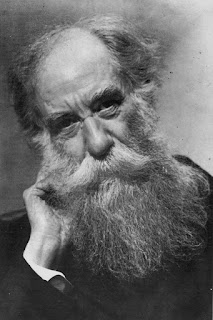Information
Composer: Charles Koechlin
- (01-14) 14 pieces for flute & piano, Op. 157b
- (15-17) Sonata for 2 flutes, Op. 75
- (18-20) Sonata for flute & piano, Op 52
- (21-33) L'album de Lilian, 1st serie, Op. 139
- (34) Morceau de lecture, Op. 218: Adagio
Fenwick Smith, flute
Martin Amlin, piano
Leone Buyse, flute (15-17)
Jayne West, soprano (21-29)
Date: 1989
Label: Hyperion
http://www.hyperion-records.co.uk/dc.asp?dc=D_CDA66414
-------------------------------------------------------------------
Review
I have been waiting for years for someone to record both volumes of Koechlin's Album de Lilian. The first, I knew, begins with a song in which he uses the advertising slogan for Palmolive soap (''Keep that schoolgirl complexion'') as a text for one of his chastely adoring and idealizing homages to the silent film star Lilian Harvey (silent in two senses: she ignored his letters and refused even to acknowledge any of the 93 works that he consecrated to his chimerique Princesse). That song turns out to be even better than I had hoped, both its poem, by Koechlin himself (''Palmolive soap is derived from palm oil and olive oil; one could use it on salad... better though to use it on the skin, on ladies' skin, to which it gives a velvetiness so marvellous that even the most demanding of lovers...'') and its innocently charming music, a hymn to beauty that is both earnest and very pretty.
How thoughtful of Fenwick Smith to have roped in a soprano (and a good one) as well as a pianist to give the nine numbers of Book 1 in their entirety. I suppose it would have been a bit unreasonable to expect him to engage a harpsichordist and an ondes martenot player to do the complete Book 2. He does include the four flute-and-piano numbers from it, though, so we have a pretty comprehensive mapping of Koechlin's gravely ecstatic obsession: two blissful waltz-songs, two bursts of almost atonal frustration, a hieratic hymn to Harvey's eyes, a sparkling snapshot of her as bathing beauty and a fantasy journey in search of her (by train, which flies through the air and crosses the Atlantic under water, arriving in the dream world of California to a heat-haze-distorted blare of The Star-spangled Banner) ending with a touching image of Koechlin waking from his dream: a still and lonely piccolo fading into silence.
Philippe Racine earns the Koechlin enthusiast's gratitude, too, for recording the exquisitely fresh and lyrical Primavera, Koechlin's expression of gratitude for the warmth of returning spring and his homage to the classical chamber music tradition. Both players include the serenely lucid Sonata (''for piano and flute'', as the title-page has it); I enjoyed Racine's coolly Gallic tone and athletic zest in the finale no less than Smith's more overt warmth and long line (though Racine, by a short head, has the better pianist), and both Claves and Hyperion know to a nicety how the flute should be balanced.
Smith (you will have gathered that I am not in the business of choosing between these two collections) makes his disc imperatively desirable by adding not only the 14 pieces of Op. 157/2 (the '2' signifies the piano-accompanied version, though they go very well also as solos; several of them are models of the art of writing a complete and satisfying piece of music that lasts under a minute) andthe unpublished sight-reading exercise but also the beautiful Sonata for two flutes. Its opening and closing pages are archetypal Koechlin, poised and haunting, neo-classical in the sense that one would apply that word to late Braque.
The same name sprang to mind when listening to the two substantial Jolivet pieces with which Philippe Racine book-ends his Koechlin. An elusive talent (pupil of Varese, much-admired friend of Messiaen: you can hear both affinities, but he is not 'school of' either, really) and an awkward one: his music has a tough, even an aggressive quality that one hardly associates with the soft complaining flute; a jagged expressiveness and a way of obsessively circling a sort of 'home note' without ever confirming a home key. Interesting: I am glad to have encountered both pieces.
-- Michael Oliver, Gramophone
-------------------------------------------------------------------
Charles Koechlin (27 November 1867 – 31 December 1950) was a French composer, teacher and writer on music. He was a political radical all his life and a passionate enthusiast for such diverse things as medieval music, The Jungle Book of Rudyard Kipling, Johann Sebastian Bach, film stars (especially Lilian Harvey and Ginger Rogers), traveling, stereoscopic photography and socialism. Koechlin was enormously prolific. Despite his lack of worldly success, Koechlin was apparently a loved and venerated figure in French music.
http://en.wikipedia.org/wiki/Charles_Koechlin
http://en.wikipedia.org/wiki/Charles_Koechlin
***
Fenwick Smith (born 1949) is an American flutist. He studied under Joseph Mariano at the Eastman School of Music, graduating from there in 1972. He became the assistant principal flutist of the Boston Symphony Orchestra in 1978, serving in that position until September 2006. During this time he was also principal flutist of the Boston Pops Orchestra. Smith has also been a member of the Boston Chamber Music Society since 1984, and since 1983 has given annual recitals at Jordan Hall.
-------------------------------------------------------------------
FLAC, tracks
Links in comment
Enjoy!



This comment has been removed by the author.
ReplyDeleteMEGA
Deletehttp://adf.ly/1fE1mC
You've got so many great Hyperion releases. Thanks.
ReplyDeleteMUCHAS GRACIAS !!! … Merci! Thank you! Obrigado! Спасибо! !ありがう! Arigato! Danke! Dziękuję! Dank je u! Mulţumesc! Teşekkür ederim! Tack! Tack så mycket! Grazie! Kiitos! תודה לך! Takk! Dakujem,ďakujem vám! Hvala! شكراً!shokran! Ευχαριστώ! 감사합니다! Děkuji! Tak skal du have! Dankon! Hvala! Najlepša hvala! Gràcies! Faleminderit! Ačiū! De’koju! Labai ačiū! ขอบคุณ! Shukrīya! بہت) شكريه (bahut)! Cảm ơn cô! Cảm ơn cô nhiều! Благодаря! Þakka þér! Baie dankie! Takk fyri! Sipas dekem! متشکرم! Благодарам! Təşəkkür! Paldies! Pateicos! Tencinu! Terima kasih! Дуже дякую! Спасибі! Баярлалаа! Гялайлаа! Танд их баярлалаа! Terima kasih! ধন্যবাদ (dhonyobād)! Salamat! Trugarez!
ReplyDeleteAgain some wondwerfull music thank you
ReplyDelete